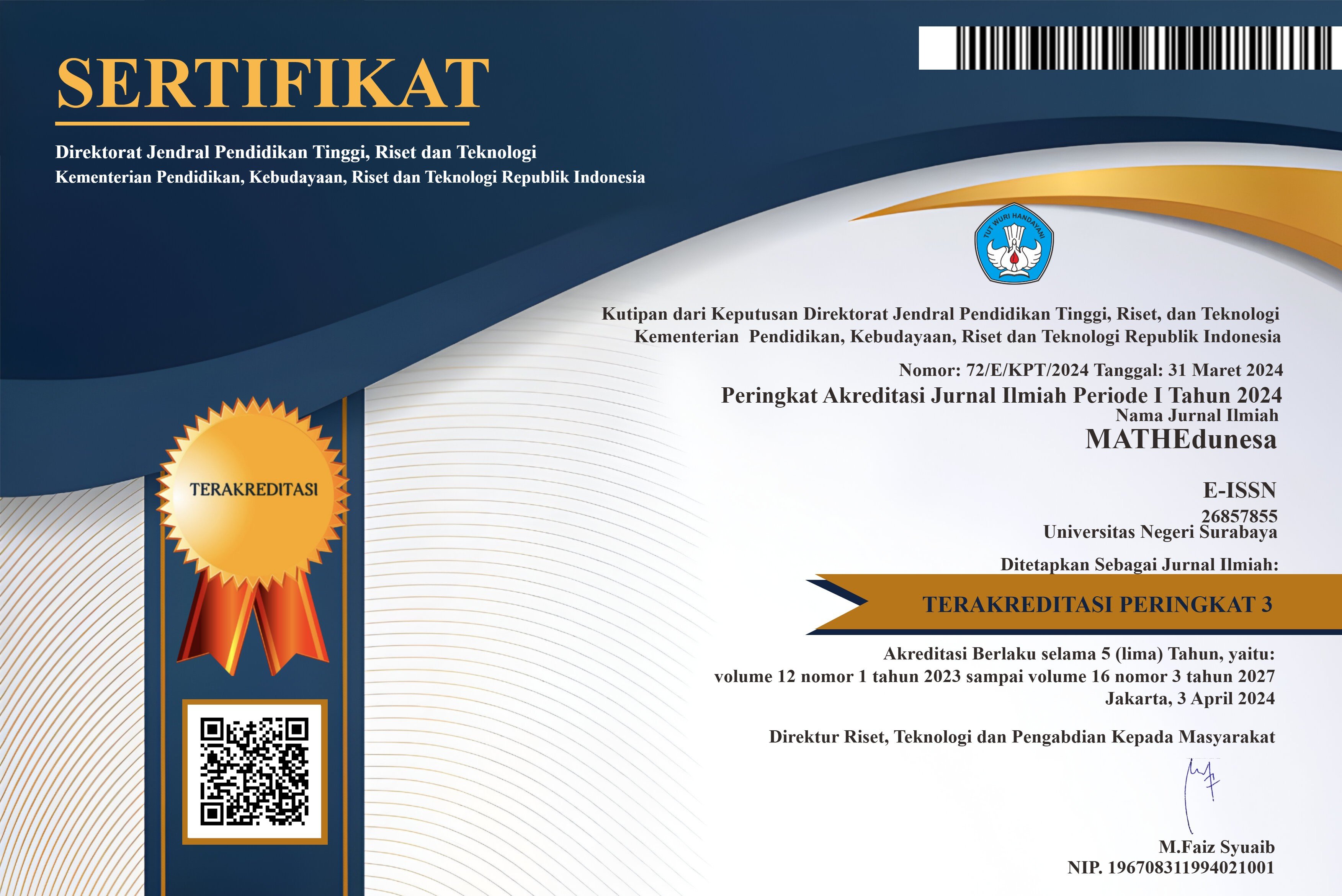Penalaran Aljabar Siswa Sekolah Menengah Pertama (SMP) dalam Menyelesaikan Soal Open-ended Ditinjau dari Adversity Quotient
DOI:
https://doi.org/10.26740/mathedunesa.v14n2.p370-387Abstract
Algebraic reasoning is the process of finding patterns from mathematical problems, recognizing relationships between quantities, and forming generalizations. Algebraic reasoning is important to develop to build deeper and more complex mathematical conceptual development. One step that can be taken is by giving open-ended questions. Adversity quotient (AQ) influences students in responding to problems. This research is a qualitative descriptive study which aims to describe the algebraic reasoning of students with climber, camper and quitter AQ types in solving open-ended problems. The instrument for determining research subjects is the Adveristy Response Profile (ARP) questionnaire, while the instruments for collecting data are algebraic reasoning tasks and interview guides. Data analysis is carried out through data condensation, data presentation, and drawing conclusions. The subjects in this research were class VIII students at SMPN 3 Surabaya consisting of one student from each type of AQ climber, camper, and quitter. The results of the research show that in the pattern search indicator, climber and camper students collect existing information and find pattern regularities. Quitter students make calculation errors so they do not find pattern regularity. In the pattern recognition indicator, climber and camper students tested the truth of the patterns they had previously obtained, while quitter students did not carry out a truth test because in the previous activity they did not find pattern. In the generalization indicator, climber and camper students make general rules in precise mathematical form. Quitter students do not write general rules on answer sheets and cannot provide explanations during interviews.
Downloads
Downloads
Published
Issue
Section
 Abstract views: 155
,
Abstract views: 155
, PDF Downloads: 169
PDF Downloads: 169




